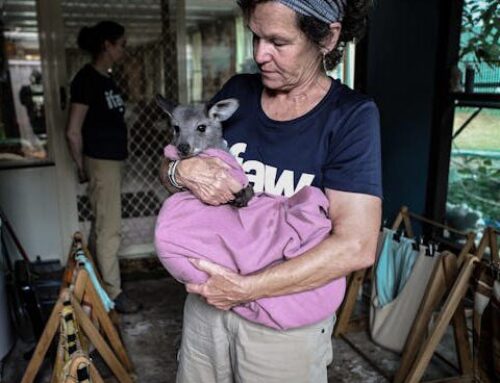Now that we’re into the fall season, all the many family focused, holiday celebrations are right around the corner. This pause before the storm of festivities is an ideal time for family caregivers to make a plan for handling extra obligations and meeting the care needs of an aging elder. The holidays are a time for festivities, relaxation, and family gatherings for many, but for family caregivers tending to their senior loved ones, it can also be a time of heightened responsibility and stress. Being mindful of a senior loved one’s care needs will require balancing logistics and navigating social, emotional, and physical stress that may pop up unexpectantly during the holiday season.
As a nonmedical in-home care agency, Amada Senior Care truly understands the challenges family caregivers face and the importance of managing expectations, so everyone can truly enjoy the season. Our knowledgeable senior care advisors suggest that you consider these crucial steps for creating a positive and realistic approach for family caregivers.
Step 1: Set and Communicate Realistic Expectations
To avoid disappointment and reduce stress, set attainable goals regarding what can be accomplished during the holidays. Communicate openly with your family members about your caregiving responsibilities and potential limitations during this time.
For instance, you might need to forego hosting dinner or shorten visits. Letting family members know about such modifications in advance allows everyone to adjust their expectations accordingly.
Step 2: Prepare and Plan for Healthy Routines
Physical and mental health are equally important for your senior loved ones, especially during the holidays. Create a routine that incorporates:
- A nutritious diet with a holiday twist by introducing healthy alternatives to traditional meals
- Light physical activities, such as a short walk or gentle stretching, to promote mobility and overall health
- Mental stimulation through puzzles, games, or engaging conversations
- Quiet, restful times for your loved one to recharge
Step 3: Share the Caregiving Responsibilities
Don’t hesitate to delegate caregiving tasks among family members and friends. This will allow you to make the most of your time with your senior loved one while providing you with necessary respite as well. Consider discussing:
- Splitting holiday meal preparations with other family members or neighbors
- Organizing in-home visits from friends or relatives to keep seniors engaged
- Designating a holiday event “co-host,” to reduce the pressure on you as the main caregiver
Step 4: Embrace New Holiday Traditions
Modifying or creating new festive traditions is a healthy way of acknowledging and accepting the changes due to caregiving. Some ideas for adapted holiday traditions include:
- Hosting a low-key gathering with a smaller group of close family members instead of a large, elaborate party
- Engaging seniors in age-appropriate activities, such as ornament decorating or listening to holiday music
- Organizing a virtual gathering with family and friends who cannot be present physically
Step 5: Reach Out for Support
Reach out to fellow family caregivers, friends, family members, or local support groups to discuss your experiences, feelings, and challenges. Additionally, seeking advice for special accommodations or helpful gadgets during the holiday season can be beneficial.
Remember, you’re not alone! There is a community of caregivers sharing similar experiences and challenges.
Care Challenges for Adult Children Living Far from Senior Loved Ones
According to the National Alliance for Caregiving, around 15 percent of family caregivers live more than an hour away from their care recipient. This group of approximately 5 million caregivers face the added challenge of assessing the well-being of their loved ones, as the holidays often are the only time of the year that they get to spend quality time with mom or dad.
Assessing the Level of Care
For long-distance family caregivers, holiday visits are a good time to assess what assistance parents or other elderly loved ones might need. The holidays also provide an opportunity to have those “must-have” conversations with elderly loved ones and other family members about care options and planning for the future. The holiday season offers a chance to watch for any warning signs that a senior loved one needs a new level of care sooner rather than later.
Adult Children and Care Planning
Adult children who are not able to visit mom and dad or their grandparents during the holidays can look into virtual care via technology and automated services as a way to regularly check in on them. AARP caregiver expert Amy Goyer suggests video-calling loved ones as a way to maintain social connection but also to virtually check in on their mental wellbeing and physical spaces. Another option to consider is an in-home monitoring system like Amada Connect with voice-activated, emergency response devices. For those uncertain about where to start, reach out to Amada Senior Care as a resource to ask about options for in-home assistance designed to keep elderly loved ones safe and healthy.
For adult children who are making holiday visits to elderly parents and grandparents, what are some of the “must-have” conversations and why are they essential? One is end-of-life care planning. While it seems like a dreary conversation to have, it is one that is essential when it comes to your family’s peace of mind. While estate planning is important, you should also consider creating an Advance Healthcare Directive, which lays out your loved one’s medical wishes in a life-or-death situation. It also appoints an agent to speak on their behalf.
Meeting Your Senior Loved Ones’ Financial Care Needs
Are your loved ones financially prepared for the possibility of needing long-term care? What is their “aging plan” – would they prefer to age in their home with in-home services, or is an assisted living community, nursing home, or care facility an option? Discussing your aging loved ones’ needs, wishes, and options will include them in the preparations for the likelihood of needing long term care, whether it is needed next week or 20 years from now.
How to Enhance Your Senior Loved One’s Quality of Life Beyond the Holidays
Dr. Melissa Henston, a geriatric psychologist in private practice with Colorado NeuroBehavioral Health, said it’s important to tread carefully when starting these conversations. “Typically, you need to look for the opening and opportunity, rather than just jumping in,” she said. “Don’t try to take control. Try to get a natural conversation going.” Henston also said to still respect the parent-child relationship. She suggests setting the right tone by sitting in a comfortable location, starting with a normal and conversational tone, and asking open-ended questions to start the flow of conversation.
“Elderly loved ones usually appreciate an honest conversation,” Henston said. “If you discuss that it’s important to communicate their wishes for retirement and end-of-life care, you’ll go farther than if you are condescending or dishonest.”
Evaluating Aging Loved Ones in Their Own Home
Spending time with your loved one, especially in their home, also gives you a chance to evaluate their physical, mental, and emotional health, and to spot any warning signs that they may need assistance. It’s usually easy to tell if there are problems – you will quickly notice if things seem “off” or out of the ordinary. A few things to look out for are:
- Poor diet or weight loss
- Unpaid bills or trouble keeping up with finances
- Poor personal hygiene
- Mobility issues – getting in and out of chairs, difficulty balancing, walking slowly
- Unkempt house, clutter, and laundry piling up
- Forgetting to take medications
- Unexplained dents or scratches on the car
- Extreme mood swings
- Spoiled/expired groceries
If you notice any of the red flags above, it is crucial to start those “must-have” conversations, no matter how difficult it seems. Ignoring these warning signs often puts families in difficult situations when a crisis occurs, especially those without any plans in place. This holiday season may be the best time for you to talk to your family and senior loved ones about planning for the future. While the topics can be difficult, the peace of mind they provide is priceless.
How a Home Care Agency Can Help Family Caregivers
Senior home care providers allows your senior loved one to age in their own home while receiving the proper level of care. In-home caregivers can provide care assistance with activities of daily living that can enhance older adults or seniors’ lives, such as meal preparation, dressing, or toileting.
High-Quality Companion Care
At Amada Senior Care, our caregivers are more than just that. Our team understands the importance of companion care. Our caregivers undergo background checks and are highly trained in activities of daily living and personal care services. To find a caregiver near you, contact us today.
Planning, communication, and adaptability are key to managing expectations and building a positive, yet realistic approach to holiday caregiving. By keeping these steps in mind, you can create a more enjoyable holiday season for your senior loved one, your family, and yourself.



